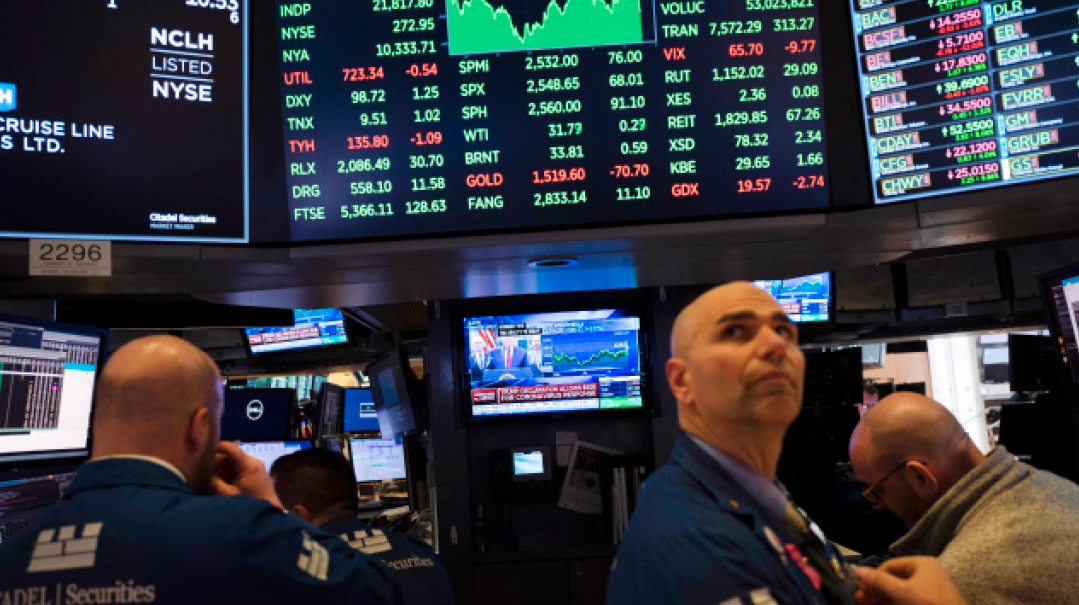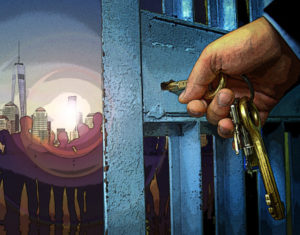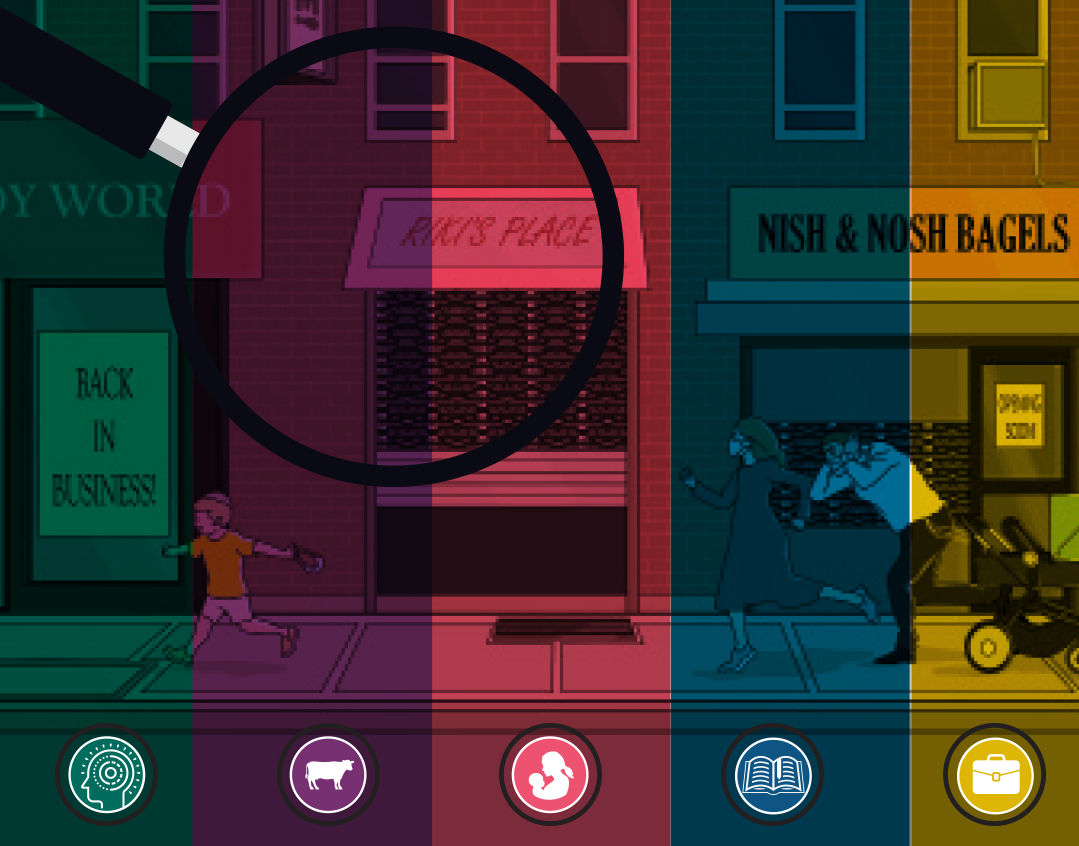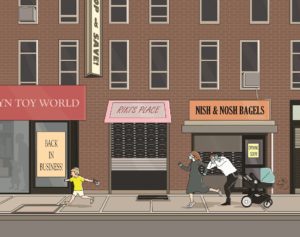Choosing the Right Economic Medicine

Applying the same old remedies to a totally different type of financial calamity runs the risk of steering the economy into a steep recession

Medical science has yet to develop a vaccine or cure to eradicate the coronavirus.
Governments and central bankers worldwide are in the same boat, scrambling to prescribe the right medicine for a global economy in quarantine.
Just as prescribing the wrong medicine can worsen a patient’s condition, applying the same old remedies to a totally different type of financial calamity runs the risk of steering the economy into a steep recession. Bloomberg Economics estimates that the crisis could result in lost output of $2.7 trillion worldwide.
A Congressional measure to provide a $50 billion booster shot to the US economy for more unemployment insurance, sick-leave plans, and food-assistance programs is already under attack for covering just a small percentage of Americans impacted by coronavirus.
The ultimate aid package may reach $200 billion and include payroll tax cuts and cutting a $1,000 check to every American, a measure opposed by at least one leading economist.
“It would be completely pointless,” said John Cochrane, a senior fellow at the Hoover Institution at Stanford University. In his podcast late last week, Cochrane said the goal of stimulus is to increase consumer spending. “If stores are closed, where are you going to spend it? And do we really expect people to take a stimulus check and spend it on a cruise around the world?”
Cochrane contends the government must devise a plan to keep businesses and lenders afloat for the next three to six months. It’s like garaging your car before a long vacation and making sure it will start again as soon as you get home.
“The economic challenge here is to make sure when this ends we’re ready to go again and haven’t done a lot of damage,” Cochrane said.
That damage can come from businesses that are highly leveraged — financial parlance for being in debt up to their ears.
“If you’re running a restaurant, an airline, a cruise ship, or a store, nothing’s going to be coming in the front door for a couple of months and you still have to pay your mortgage, your debts, your salaries,” Cochrane said.
In addition to the Fed-fueled liquidity feast we saw last week aimed at stabilizing the financial markets, Cochrane recommends pinpointing aid to financial institutions with the proviso that they keep lending to US corporations and businesses grappling to make payments on a $10 trillion debt load, not to mention consumers saddled with a record $14 trillion in debt on their mortgages, car loans, credit cards, and student loans. “If businesses start firing their employees, who then default on all their loans, the banks are in deep trouble. That’s the worry right now. If you’re not able to pay, the bank should say, okay we’re not going to send you to bankruptcy court and seize assets, but at the same time, banks have their bills to pay too, so this has to be thought through in Washington.”
The Silver Lining in the Cloud
If there’s anyone whose job is on the line due to the latest financial crisis, it may be President Trump.
Trump has been quick to take credit for an almost 50% rise in the stock market since his inauguration, but most of those gains have now been erased. And unless coronavirus takes a summer vacation, Trump has lost one of his major talking points. The 1992 recession doomed President George H. W. Bush to be a one-term president, even though a year earlier, Bush’s approval rating was a sky-high 89% following America’s Gulf War victory.
What are the prospects of a market recovery and how fast might it snap back?
“This is a crisis unlike any other crisis we have seen in the last 100 years,” said Dan Galai, speaking at a news conference in Jerusalem last week. Galai, a world renowned financial engineering and risk management expert and former dean of Hebrew University’s School of Business Administration, is considered the co-inventor [along with his colleague Menachem Brenner] of the VIX index, now the international standard by which the financial markets measure short-term volatility. Nicknamed the “fear index,” the VIX is one of the few financial instruments that rose in last week’s volatile activity, trading about five times above its long-term average.
We can expect the volatility and fear to continue, Galai said.
“Nobody has clarity about the duration of the crisis, whether it is something that we can contain in two months when the summer weather arrives, or even if it may reappear next year,” he said. “The market panic is a response to the uncertainty and unknowns on a global basis. When people panic they look for liquidity and when they look for liquidity they sell everything. Of course it will create some opportunities, but that’s not the issue now.”
Near term, investors should be watching the unemployment rates in various countries. “This will be the first index where we will see the depths of the crisis,” Galai said. “Right now it’s 3.6% [in the United States] and if businesses start firing it can easily go to 6% or even 7%.”
Normally, once a crisis ends, it takes six months for the markets and the economy to show signs of recuperation.
While Galai obviously does not give investment advice — nor do I — one can infer from his presentation that it would be best to avoid “bottom-fishing” in deeply troubled industries such as tourism, airlines, or hotel chains. “No one will compensate them for their huge losses. And the next circle of risk is in the restaurant industry, entertainment, and shopping malls.”
The price of oil on global markets has fallen in half, which is good news for energy consumers but bad news for energy producers and the fracking industry.
Galai also contends, thanks to the manner by which high-tech and cyber-tech industries are financed, they are somewhat immune to coronavirus, as long as the pandemic doesn’t last more than a year.
“Venture capital funds have excess money, are looking for opportunities and they know the investments are risky to begin with,” Galai said. “I also don’t see start-up bio-meds, start-ups in the cannabis industry, and autonomous cars being adversely affected, although Fintech in B2B platforms will be hurt by rising default rates.”
At some point in time, when the coronavirus nemesis is either conquered or contained, we can be certain of one thing. The next cycle of boom and bust is not far away.
“The memory of human beings, as far as crises are concerned, is about five to ten years,” Galai said. “We saw how greed got everyone in trouble in 2007, and everyone said, ‘From now on we’ll be more careful.’ Well, it took about five years for people to get greedy again and get into highly leveraged positions, so any lessons we can learn this time around depends on how long we can maintain this in our memories.”
(Originally featured in Mishpacha, Issue 803)
Oops! We could not locate your form.







